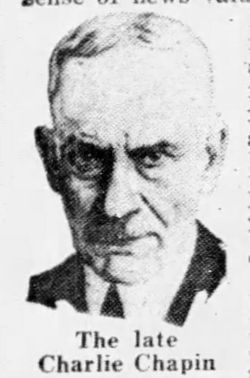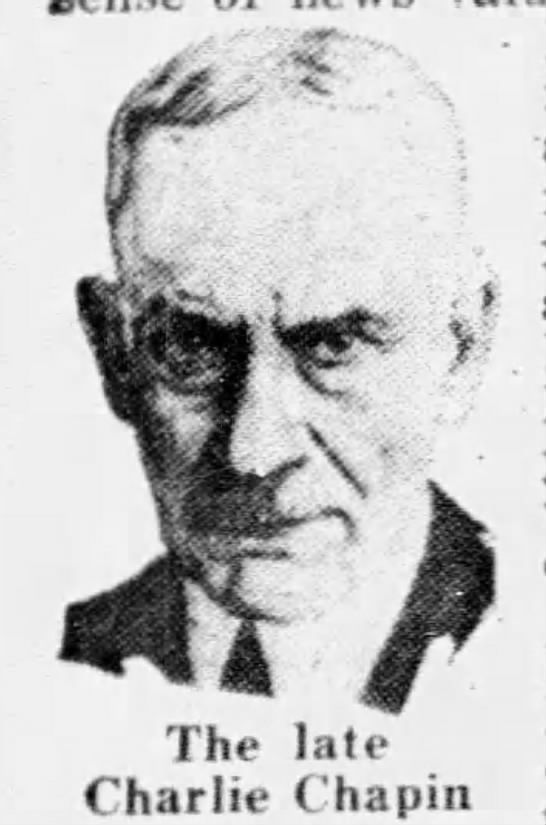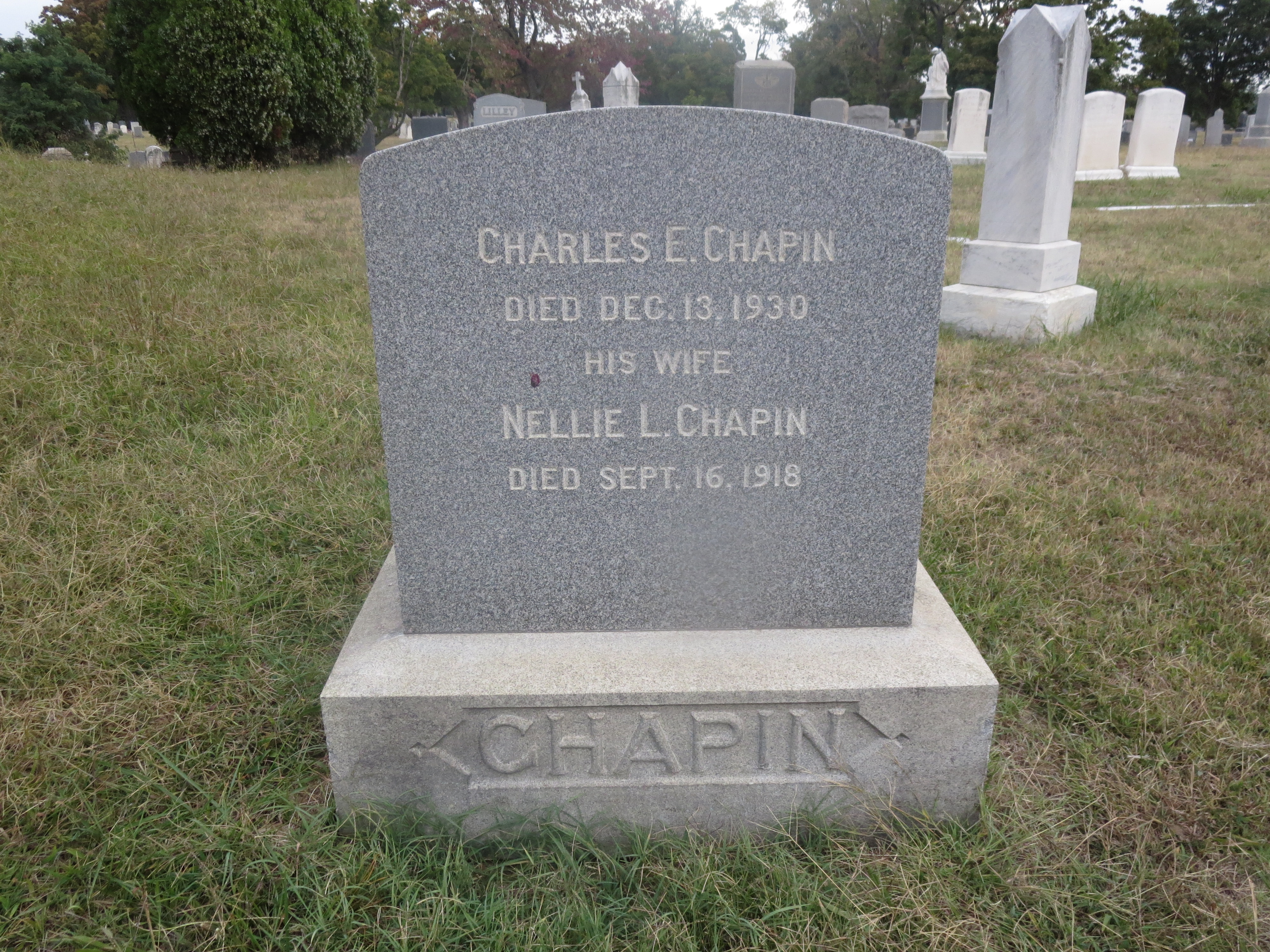Son of Earl and Cecilia A (Yale) Chapin. Sixth great grandson of Deacon Samuel Chapin, considered to be one of the founding settlers of Springfield, MA.
Charles E Chapin got his start in the newspaper business in the Midwest prior to his meteoric rise to fame in the publishing business as the city editor of Joseph Pulitzer's New York Evening World, a position he held for twenty years.
Chapin's lavish lifestyle and financial setbacks, combined with a history of depression and anxiety, caught up with him on the evening of September 16, 1918. Beset by a feeling that his wife of 39 years, Nellie L (Beebe) Chapin, would not be able to cope without him, he wrote a suicide note, and shot his wife as she lay sleeping in their hotel suite.
Chapin was unable to take his own life, and following an extensive search for him on September 17, turned himself in to law enforcement authorities.
On January 14, 1919, Charles Chapin pled guilty to second degree murder and was sentenced to 20 years to life at Sing Sing Prison in Ossining, New York. During his time at Sing Sing, Chapin obtained permission to revitalize the inmate garden, and earned the nickname the "Rose Man," as a result of his efforts.
James McGrath Morris, historian and author, wrote about Chapin's life in his book, The Rose Man of Sing Sing: A True Tale of Life, Murder, and Redemption in the Age of Yellow Journalism, selected by the Washington Post as one of the best non-fiction books of 2004.
Charles E Chapin died of bronchial pneumonia at Sing Sing on December 13, 1930.
Son of Earl and Cecilia A (Yale) Chapin. Sixth great grandson of Deacon Samuel Chapin, considered to be one of the founding settlers of Springfield, MA.
Charles E Chapin got his start in the newspaper business in the Midwest prior to his meteoric rise to fame in the publishing business as the city editor of Joseph Pulitzer's New York Evening World, a position he held for twenty years.
Chapin's lavish lifestyle and financial setbacks, combined with a history of depression and anxiety, caught up with him on the evening of September 16, 1918. Beset by a feeling that his wife of 39 years, Nellie L (Beebe) Chapin, would not be able to cope without him, he wrote a suicide note, and shot his wife as she lay sleeping in their hotel suite.
Chapin was unable to take his own life, and following an extensive search for him on September 17, turned himself in to law enforcement authorities.
On January 14, 1919, Charles Chapin pled guilty to second degree murder and was sentenced to 20 years to life at Sing Sing Prison in Ossining, New York. During his time at Sing Sing, Chapin obtained permission to revitalize the inmate garden, and earned the nickname the "Rose Man," as a result of his efforts.
James McGrath Morris, historian and author, wrote about Chapin's life in his book, The Rose Man of Sing Sing: A True Tale of Life, Murder, and Redemption in the Age of Yellow Journalism, selected by the Washington Post as one of the best non-fiction books of 2004.
Charles E Chapin died of bronchial pneumonia at Sing Sing on December 13, 1930.
Family Members
Sponsored by Ancestry
Advertisement
Advertisement









